US universities impose ‘police state’ rules to prevent campus protests over Gaza war
US universities have imposed “police state” rules to avoid a repeat of campus protests against Israel’s genocidal war on Gaza, with students and faculties warning of the chilling effect they would have on free speech.
Reports indicate that as summer break ends, university administrations across the United States are imposing tougher measures to avoid a new wave of campus protests, which led to nationwide police crackdowns on campuses last semester.
Large protest encampments set up last semester eventually ended after a nationwide police crackdown on campuses in different US universities led to more than 3,100 arrests.
Scores of students faced criminal charges and disciplinary measures, and several schools scaled back graduation ceremonies for protesting against the Israeli war which has killed more than 40,000 Palestinians so far.
Columbia University students, who were at the vanguard of the movement, may encounter the most changes.
The university president, Minouche Shafik, resigned this week in the wake of criticism for her handling of the protests, but not before overseeing the installation of fencing around the lawns of the school’s quad – the heart of campus life and the site of large protest encampments.
According to the Wall Street Journal, university administrators are also considering bringing in “peace officers” with the authority to arrest students – something Columbia’s current 290 security personnel cannot do.
In an email sent to students last month, the administration also announced a “color-coded campus status” system, with varying levels of access restrictions “based upon the potential disruption to our academic mission and/or campus operations.”
To further confront protesting students, some universities have banned the use of “event tents, tables, walls, outdoor displays, inflatables, freestanding signs, huts, sculptures, booths, facilities, flashing or rotating lights, illuminated signs, or similar objects and structures.”
Students say despite new draconian rules the pro-Palestine rallies will continue as long as Israeli atrocities go on in occupied Palestinian lands.
“The war is still there … nothing has changed in Palestine,” said Jonathan Ben-Menachem, a sociology PhD student who participated in the Columbia University students’ campus protests.
He said universities' efforts to quash the protests when students return from summer vacation will fail.
“It’s going to be more of a police state than it was, but I don’t think that means no one’s going to do anything,” the graduate student pointed out.
Human rights advocates and student activists as well as university faculty members have sounded the alarm about the new policies, warning that the restrictions in addition to endangering free speech, run counter to educational institutions’ mission to foster debate, risk deepening tensions on campuses, and – in the case of public universities – may run foul of schools’ constitutional obligations.
Last week, the American Association of University Professors issued a statement condemning the harsh anti-protesting rules at universities.
The tougher new rules “impose severe limits on speech and assembly that discourage or shut down freedom of expression”, wrote the group, which represents more than 44,000 faculty members nationwide.
“Those who care about higher education and democracy should be alarmed.”
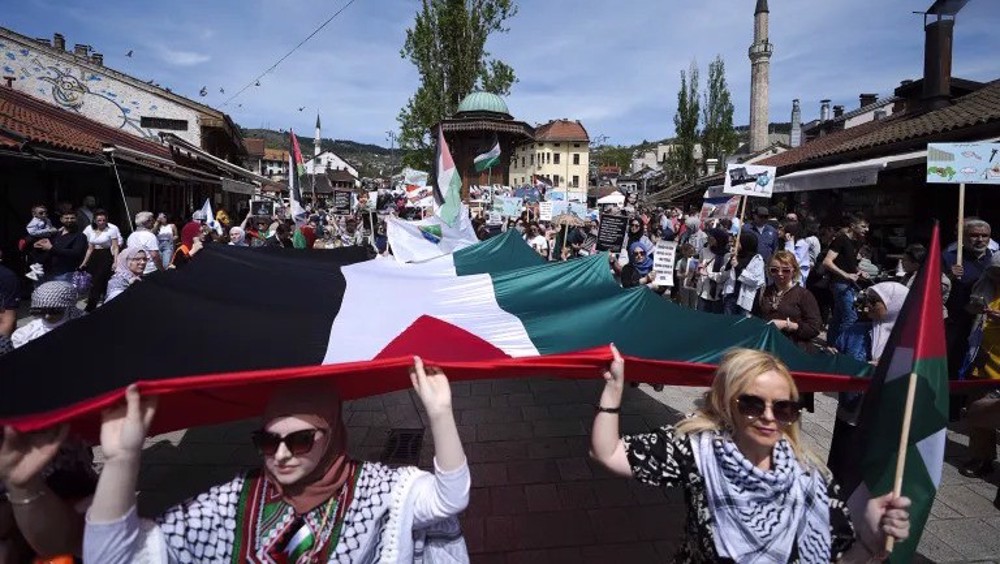
Hamas urges global strikes, sit-ins to end Israel’s genocide in Gaza
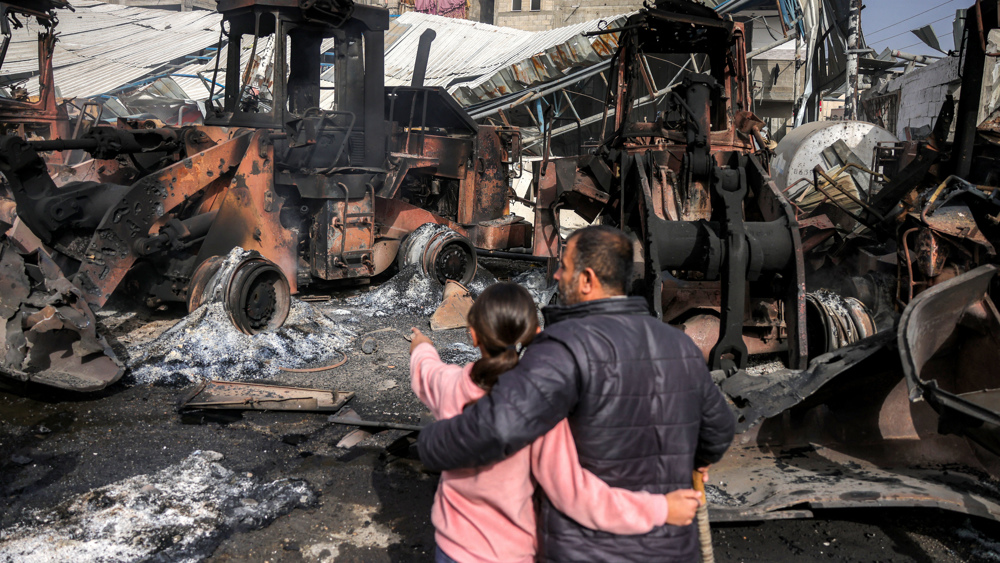
UNRWA: Gaza ‘land of desperation’ after 50 days of total Israeli siege
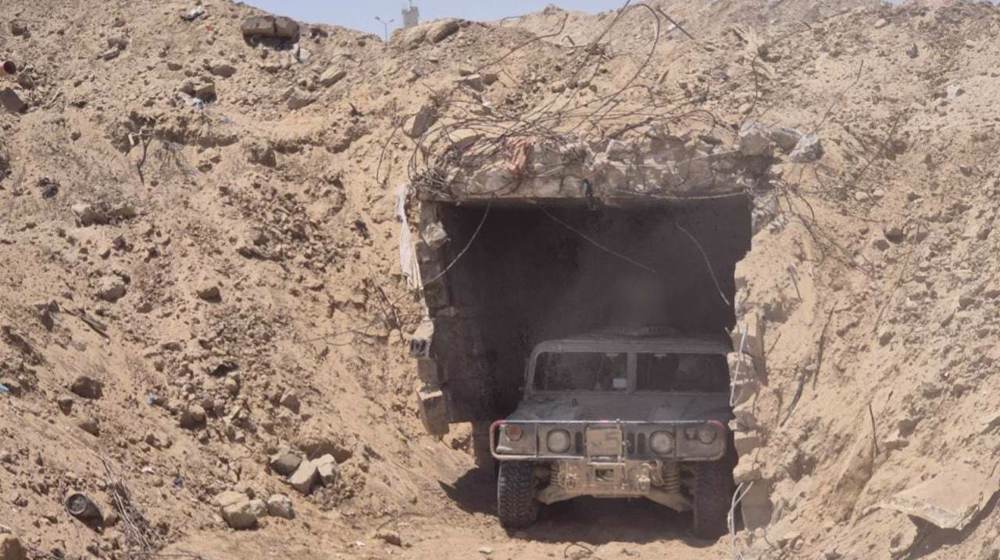
Lies unraveled: Ex‑minister says Israel faked Gaza tunnel image to stall truce deal
VIDEO | Iran seeks foreign investment to boost oil, gas sectors
Iran condemns terror attack in India's Kashmir region
After second Signalgate scandal, Democrats call for Hegseth’s resignation
Mahmoud Khalil missed son's birth after US officials denied temporary release
Iran’s annual inflation up 0.7% to 33.2% in April: SCI
Ayatollah Sistani offers condolences on passing of Pope, hails his role in promoting peace
Iran says expert-level talks with US postponed to Saturday
Iran issues jail sentences, fines for foreign crews of fuel smuggling ships


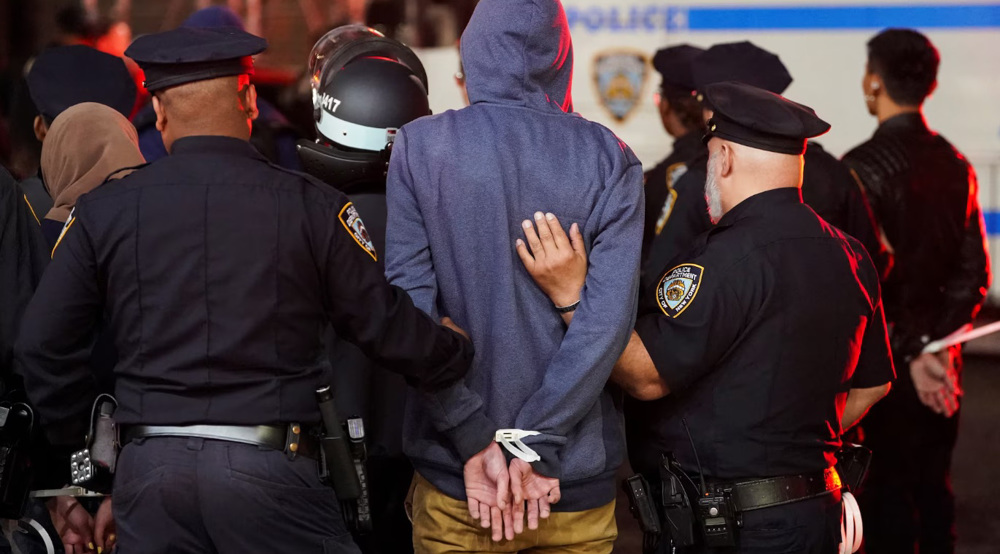
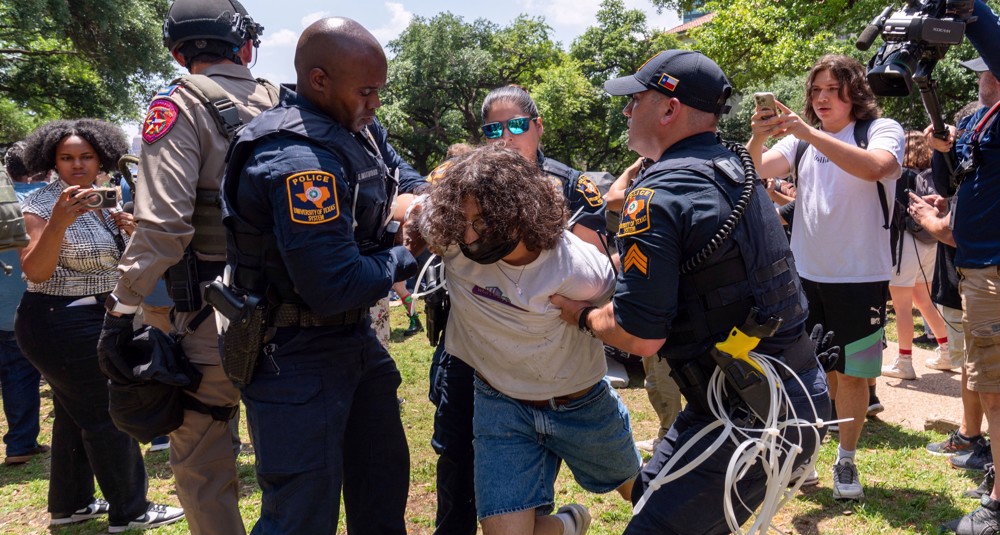



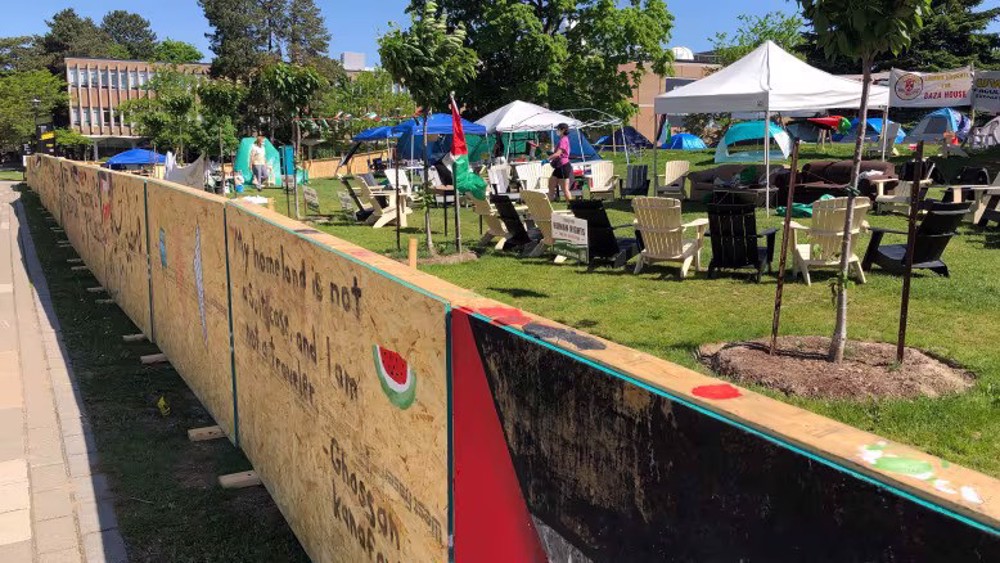
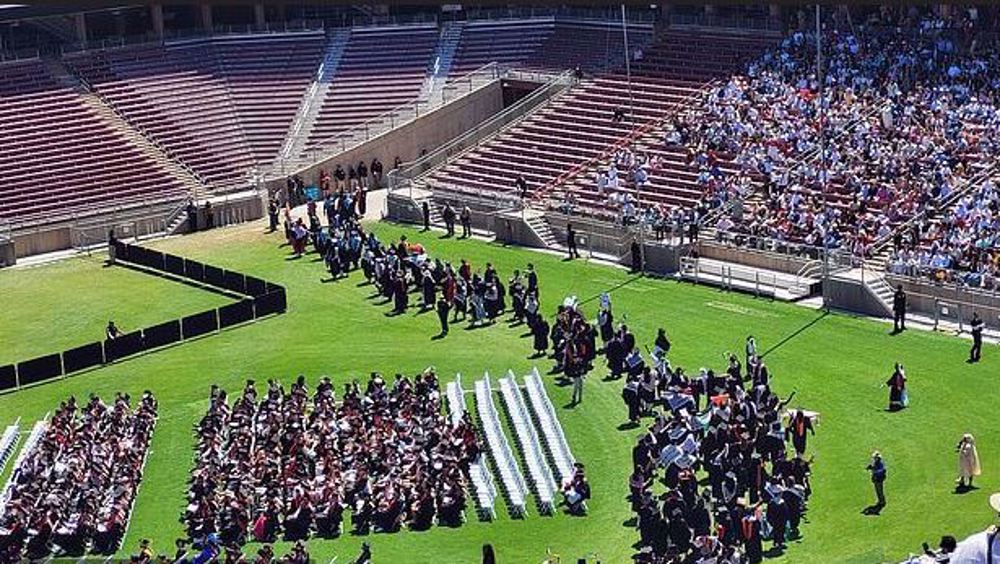
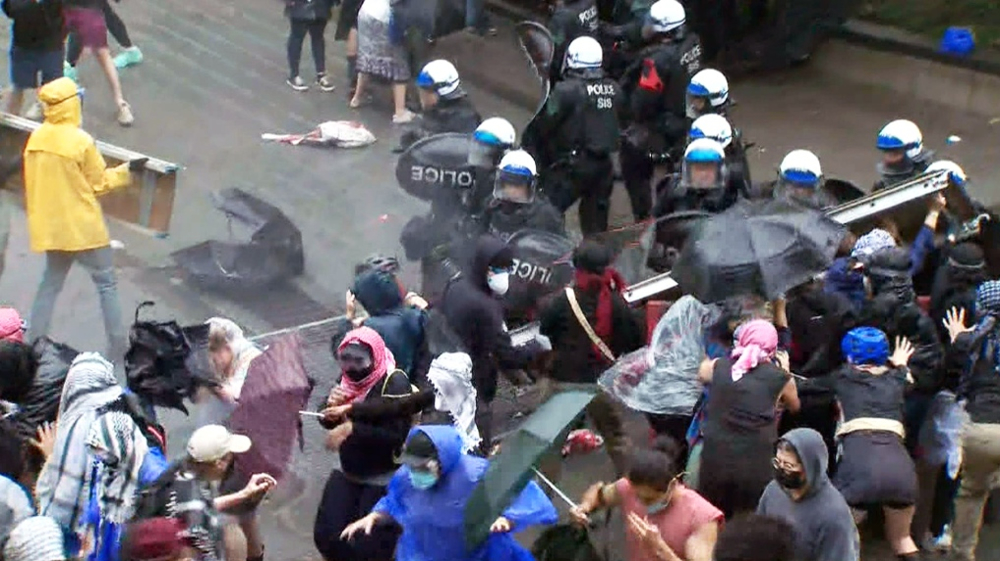
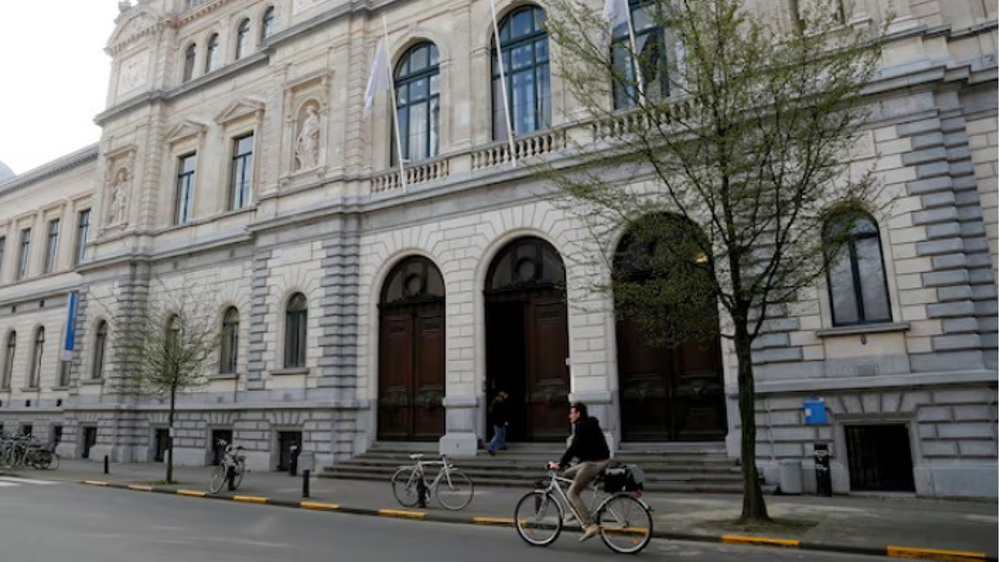
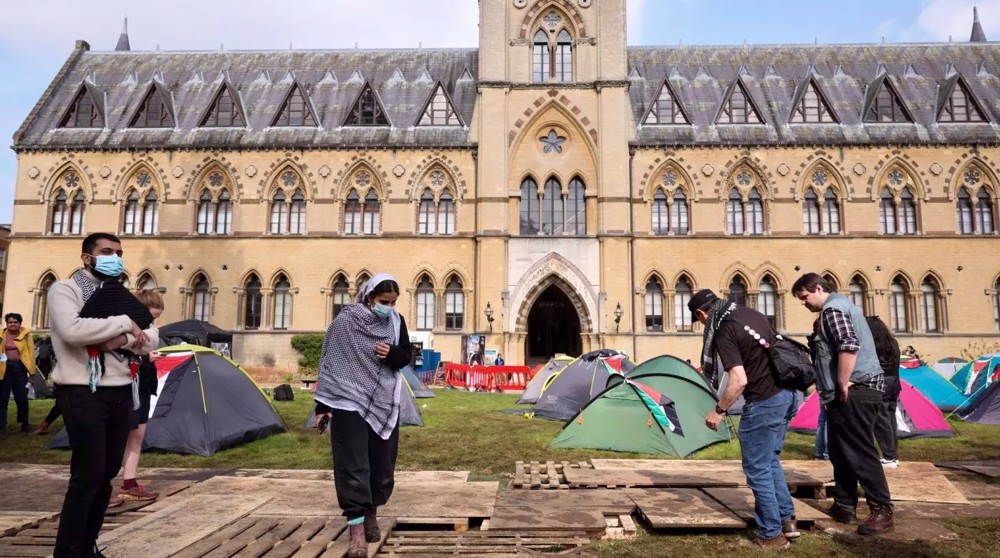
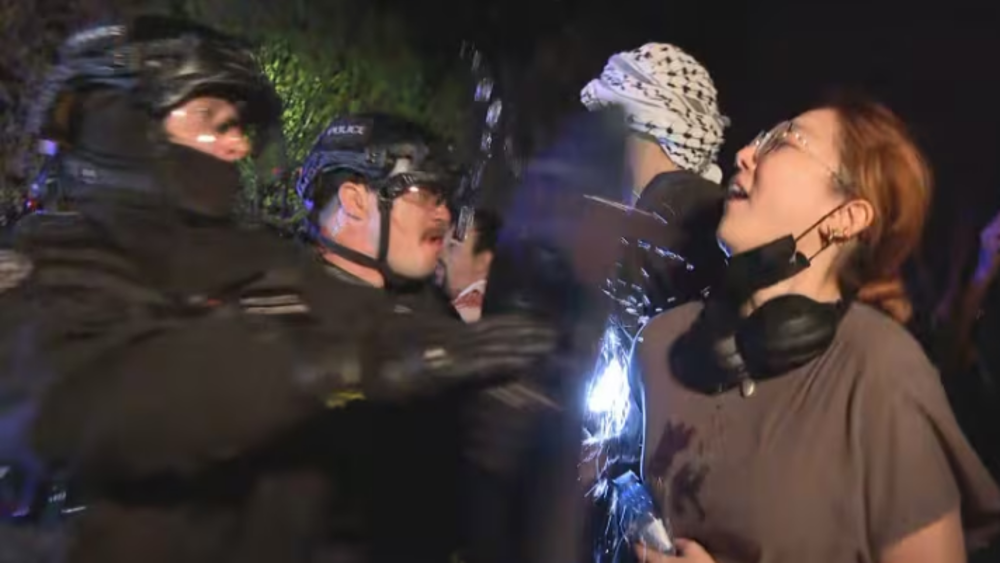
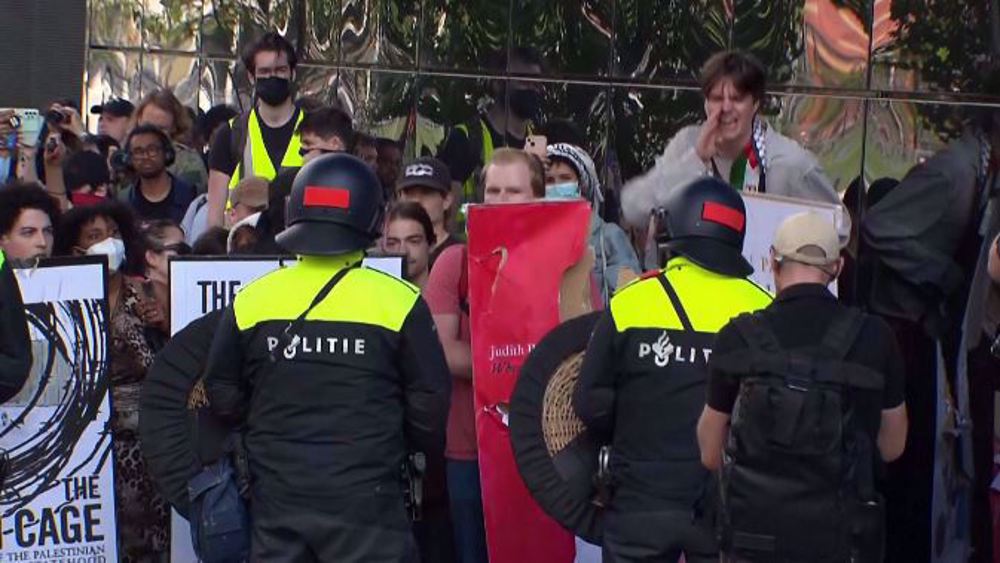
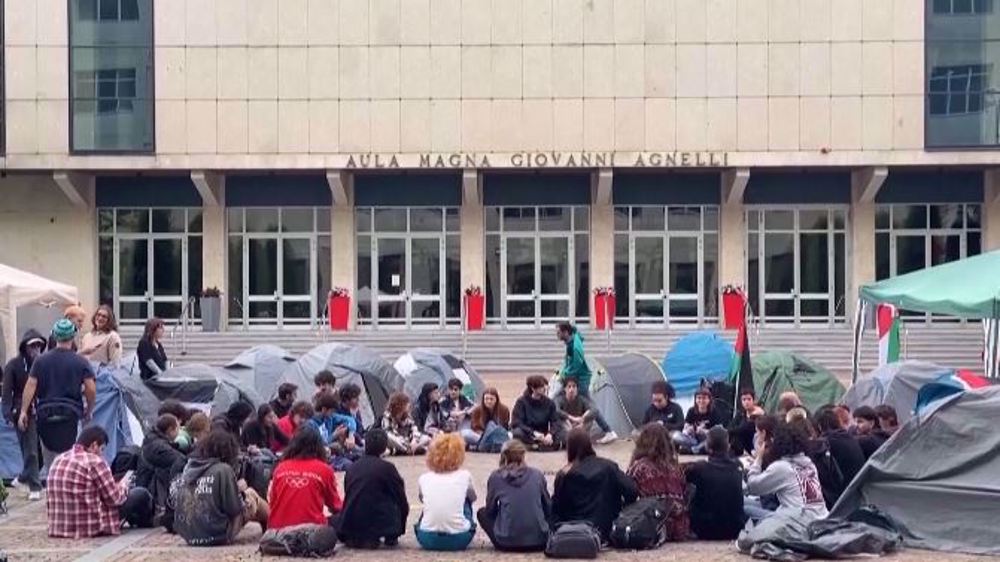

 This makes it easy to access the Press TV website
This makes it easy to access the Press TV website